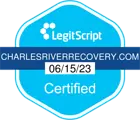What Does Drug Detox Feel Like?
Detoxification is an essential first step on the road to recovery from any kind of substance use disorder. One of the reasons why people struggling with substance use disorders hesitate to participate in a detox program is because they aren’t sure what to expect from it. Some people may even feel guilt or shame at the idea of needing a program, which only encourages them to avoid a solution that could change their lives.
The truth is that each person’s individual experiences will depend on many specific factors, particularly on the type of substances used as well as the duration and dosage of the practice. However, there is a lot more research and information available now compared to years past for clients and professionals alike. This gives people plenty of opportunity to explore the process and prepare themselves for what’s involved.
About the Drug Detox Process
The term detoxification or detox describes the management of the physiological effects that unfold when a person stops using an addictive substance. These effects, which are collectively known as withdrawal, are a wide range of symptoms that cover many aspects of physical, mental, and emotional health. While detoxification and withdrawal are definitely related concepts, there are some important differences between the two terms.
Withdrawal vs. Detoxification
Technically, the term withdrawal describes all of the negative, uncomfortable, or painful experiences that happen when an addictive substance is no longer available to the body. It also covers the many psychological, behavioral, and emotional consequences that can arise from this experience. These symptoms are often the chief motivation that compels people to seek another dose, especially for long-time users.
Detoxification describes a deliberate attempt to manage a person’s withdrawal symptoms, particularly during the initial and acute stages. Detox usually takes the form of a tailored plan to help individuals face the challenges of quitting and improve their chances of long-term recovery.
Understanding Withdrawal
Prolonged drug use often changes some of the normal biological, chemical, and psychological processes in the body and brain. When the drug is no longer present or isn’t available at the same levels, these processes begin to slowly reverse back toward normal levels. The acute period of physical withdrawal typically lasts from a few days to weeks, but symptoms like sudden cravings and depression can persist much longer.
Importance of Detox
Quitting an addictive substance without any plan or support has a high risk of ending in a relapse, which can discourage further attempts to find real solutions. It can also be life-threatening when there is a strong physical dependency or if serious behavioral changes result from withdrawal. Detoxing is important because it allows people to face the challenges of withdrawal in a safe environment where their symptoms can be supervised and eased as needed.
Seeking professional support during this part of the recovery process can also help equip clients for the future. There is a lot of practical advice to be gained from people with years of experience in the field, including effective strategies for developing a foundation for a healthy mentality and habits. Participating in a program on-site also helps clients avoid social contacts or environments that might encourage relapse.
Common Withdrawal Symptoms
The type, severity, and length of withdrawal symptoms depend on many factors specific to the individual case. The type of drug, duration of use, and dosage levels are usually the chief factors that are relevant when developing expectations about the detox process. However, people’s existing mental and physical health as well as their social environment and conditions can have a major impact as well.
Due to the different ways that various drugs interact with the brain and bloodstream, clients should dig into the specifics relevant to them. However, there are many types of generalized symptoms that often emerge during detox across the board. General symptoms of withdrawal include:
- Changes in sleeping patterns
- Loss of appetite
- Unpredictable mood swings
- Depression or suicidal ideation
- Antisocial behavior and irritability
- No interest or motivation
Opiates
Opiates are a diverse collection of pharmaceutical and natural narcotics that have powerful pain-killing properties. They also have the ability to produce euphoria, energy, and improved mood, which means they have extremely high addictive potential physically and psychologically. Data from 2018 shows that over 10 million people in the United States used these kinds of pain relievers without a prescription, with almost one million estimated to use heroin alone. Other commonly used opiates in America include hydrocodone, oxycodone, morphine, and methadone.
Withdrawal from opiates can produce many negative symptoms that can impact any part of a person’s life. The early stages begin to emerge almost immediately as the active substance causes symptoms like exhaustion, runny nose, irritation, and insomnia. More tangible physical effects, like diarrhea, cramping, and goosebumps, can emerge within 12-24 hours after the last usage.
Alcohol
Even though most people don’t think about it this way, alcohol is one of the most popular psychoactive drugs in the world. It’s generally considered milder than other addictive substances and is socially acceptable in most cultures. This can lead people to underestimate its dangers, which is one of the reasons it’s linked to more chronic disease and deaths than any illicit substance.
Heavy and long-term alcohol use can lead to a complicated withdrawal, which means supervised detoxing can be a life-saving decision. Typical symptoms associated with stopping alcohol include headaches, nausea, and exhaustion. As the withdrawal process continues, it’s often characterized by effects like tremors or trembling, abnormal heart rate, and extreme agitation.
Cocaine
Extracts from the leaves of the coca plant have been purified as cocaine for use in medicine for more than 100 years, so the drug’s dangerous and addictive properties are well known. This drug usually produces desirable effects quickly and dramatically, which can result in bursts of euphoria and energy that are followed by distinct mood crashes afterward. It can also have dramatic negative impacts on physical health even with short-term use.
Unlike some of the physical symptoms associated with heroin and alcohol, it’s possible for cocaine withdrawal to have few or no evident visible symptoms. However, the internal emotional and psychological effects can still be profound and difficult to handle. The inability to rest or relax is a primary symptom of cocaine withdrawal along with general fatigue, depressive mood swings, and appetite changes.
Amphetamines
Amphetamines increase energy levels, motivation, and ability to focus for some individuals, which is why they are sometimes prescribed for attention disorders. Withdrawal symptoms typically begin with lethargy, depression, and lack of motivation within about 24 hours of the last dose. These symptoms may grow or persist for a much longer time depending on frequency and severity of use.
What to Expect From Detoxification
Detoxification is basically an informed action plan that is designed to ease the symptoms of withdrawal enough to ensure clients won’t hurt themselves or others and improve the treatment success rate. Typically, programs are personalized based on the individual’s life situation, physical condition, and history of substance use disorders. Ensuring the health and safety of clients should always be the first priority in this kind of care.
Acute Symptom Relief
Managing and reliving the acute symptoms that occur in the early stages of withdrawal is a central focus of the detox process. Ensuring clients stay hydrated, nourished, and get sufficient rest is usually the focus of initial therapy while dealing with the immediate emotional and psychological distress. However, people going through the acute stages of early withdrawal can expect to face physical, mental, and emotional challenges as their bodies and minds begin to normalize.
Serious physical pain and discomfort may be treated with other types of drugs or through controlled remission of dosage levels. One of the most common examples of this practice is methadone, which is often administered in measured doses to long-term heroin users as part of their detox. However, this type of treatment is not without its own risks and potential for dependency, so it’s a solution that should be done in a controlled environment.
Developing Coping Mechanisms
Short-term coping mechanisms are an important part of the detoxification process for many people. Long-term substance use trains the brain that drugs are the optimal path to achieve a feeling of gratification or satisfaction, which can cause people to feel trapped or hopeless as they face the withdrawal process. Coping mechanisms could be anything from taking a few deep breaths to seeking conversations to distract from the desire to use.
These immediate mechanisms can be blended and developed into a long-term coping strategy to equip the person to face the challenges that may arise in the months or years ahead.
Find Programs That Fit People
One of the reasons why clients choose Charles River Recovery is because of our flexible and tailored detox programs. There are a lot of different options, aspects, and considerations that can influence treatment outcomes, and it’s important to use all of the tools available to face the challenges of substance use disorders.
We do this by giving people options about how to approach their treatments, including access to a range of holistic techniques, a supportive community, and the possibility of outpatient detox in some cases. Our team is also familiar with the considerations and challenges of dual-diagnosis cases. We believe it’s important to bring as many of these elements together as possible to provide plans that are truly designed for you.






